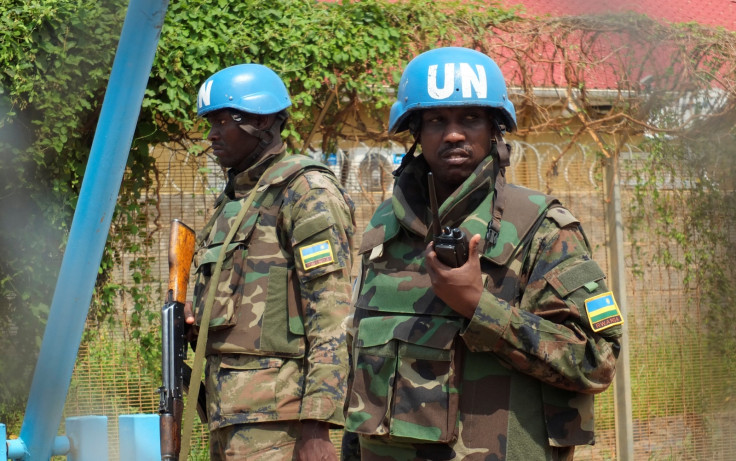South Sudan: UN peacekeepers failed to protect civilians during rape and killing in Juba
Witnesses and Human Rights Watch NGO say not enough was done to protect locals.
United Nations peacekeepers in South Sudan have been accused of not intervening as government troops raped and killed civilians. South Sudanese soldiers went on a rampage across the capital Juba after defeating opposition forces in fighting that left more than 300 people dead in July.
Witnesses told news agency AP that government troops killed at least one local journalist, sexually assaulted foreign women and girls, harassed aid workers and carried out mock executions.
They added the UN peacekeeping force in South Sudan, (Unmiss) deployed after the eruption of the civil war in 2013, failed to protect civilians.
"All of us were contacting whoever we could contact. The UN, the US embassy, contacting the specific battalions in the UN, contacting specific departments," said a woman, believed to have been raped by 15 men.
Human Rights Watch released a report on the July unrest in Juba, in which it claimed peacekeepers "guarding the UN base did not do enough to protect women from rape in surrounding areas. In one example reported by media, on July 17 soldiers dragged a woman away. Peacekeepers saw what was happening but did not take action."
The UN soldiers had been previously accused of failing to protect local women and girls, mainly from the Nuer ethnic group, from being raped. The government denied the allegations.
Fears of new civil war
The accusations against the UN peacekeepers and government troops came as President Salva Kiir is considering the possibility of allowing an additional 4,000-strong UN contingent to be deployed to the country.
The decision came weeks after the deadly fighting in Juba. The South Sudanese government initially opposed the plan, with the South Sudanese envoy to the UK telling IBTimes UK in an exclusive interview the country does not want "to be meddled with by foreign troops".

Meanwhile, the African Union (AU) urged South Sudan's newly appointed vice-president to step down and allow the reinstatement of Riek Machar. Taban Deng Gai, former minister of mining and chief negotiator of the Sudan People's Liberation Movement-in-Opposition ( SPLM-IO), replaced Machar in a move seen by some as an obstacle to a peace deal signed in August 2015.
Machar was replaced after he fled Juba following deadly fighting. He accused government forces of opening fire on his troops, and said he would return to the capital once a third party force was deployed to ensure his and his officials' safety.
South Sudan's descent into civil war
South Sudan's conflict erupted in 2013 when President Kiir, of the Dinka ethnic group, fired his deputy Machar, a Nuer, and his cabinet.
South Sudan conflict explained
Ethnic-related violence then spread, with militia groups carrying out attacks in villages and areas known to be inhabited by either the Dinka or Nuer tribes. More than 10,000 have been killed amid allegations of crimes against humanity committed by both sides, including rape, torture and use of child soldiers. At least two million people have also been displaced.
Machar's return to South Sudan and his reinstatement as vice-president in April had restored hopes for the implementation of the peace process. However, tensions have been running high since his return.
August 2015 peace deal: The key points
- Both parties commit to immediate cessation of violence
- Machar to be reinstated as vice-president
- Foreign troops to be withdrawn
- Military personnel in Juba to be replaced by police and guards
- Creation of transitional government that will stay in power for 30 months
- Presidential elections to be held 30 days before end of transitional government mandate
- Probe into abuses committed during conflict (for the full document, click here)
© Copyright IBTimes 2025. All rights reserved.






















